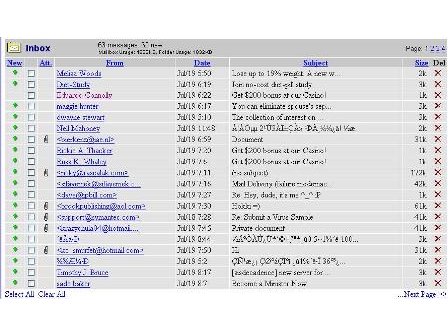Workplaces still in denial over email distraction
So says a new report that… what? What was I saying?

Many companies are still in denial about the widespread problems of email, text messaging, Facebook, Twitter and other 'digital distractions' among employees.
The problem was recently highlighted by the President of the 'Information Overload Research Group' Nathan Zeldes.
Zeldes notes that, "though people suffer, they don't fight back, because communication is supposed to be good for you."
Psychiatrist Edward Hallowell is an expert on attention-deficit disorders and claims that the modern workplace induces what he calls "attention deficit traits", similar to those of genetically based ADD.
Writer Linda Stone uses the term "continuous partial attention" to refer to the mental states of knowledge workers, also referring to a condition she calls "email apnea" or "the unconscious suspension of regular and steady breathing when you tackle your mail."
Yep, I know that feelin'
A Hewlett-Packard study even reported that the IQ scores of knowledge workers in this state of constant distraction drop from their normal level by 10 points – around twice as much on average than compared with smoking marijuana!
Sign up for breaking news, reviews, opinion, top tech deals, and more.
The Guardian's Paul Hemp (apt name) notes that the flipside to this feeling of information overload is that increasing numbers of people are becoming addicted to rapidly increasing data flows.
He explains that in a "2008 AOL survey of 4,000 email users in the US, 46 per cent were "hooked" on email. Nearly 60 per cent of everyone surveyed had checked email in the bathroom, 15 per cent checked it in church, and 11 per cent had hidden the fact that they were checking it from a spouse or other family member."
Declare email bankruptcy?
Amazingly, 26 per cent of the email users in that AOL study either declared or were considering "email bankruptcy" – simply going to your inbox and hitting Ctrl+A and then delete!
A more recent Microsoft study also claims that it takes an average of 24 minutes to return to a task after your attention has been diverted by the ping! of an incoming email.
Via The Guardian
